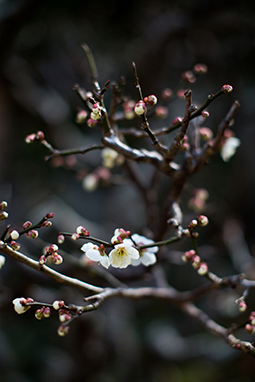
Until recently, brands like Shiseido, Kao and Lion have been reluctant to invest too much in ecological products. That has now changed in a big way.
According to the December edition of Oils and Fats International, Lion Corporation announced that its chemicals subsidiary had started using rainforest-friendly palm oil. They have chosen palm oil certified to the Roundtable of Sustainable Palm Oil (RSPO) standards.
The firm, says the article, will this year switch 2,000 of the 7,700 tonnes of oil used annually to the new standard. The remaining 5,000-plus tonnes will be converted to the standard within three years.
Further, by 2015, Lion’s detergents for washing clothes will all contain only RSPO-certified palm oil.
Kao Corporation also announced that, at its two Japan factories, all of the palm oil consumed annually—18,000 tonnes—is already RSPO-certified. In addition, the palm oil used at Kao factories in Malaysia and elsewhere is set to be changed to RSPO-certified oil soon.
Shiseido Co., Ltd. has switched all the palm oil used at its seven factories at home and abroad to a rainforest-friendly type. About 1,000 lotions and creams containing palm oil are now made entirely from rainforest-friendly, certified ingredients.
This represents a significant shift in major manufacturers’ approaches to risk management, due to the potential for bad press stemming from the use of questionably sourced palm oil.
One possible reason for the trend is the new EU regulations on palm oil labelling. Another is that Unilever announced in November 2013 that, by the end of 2014, all of the palm oil it buys globally will be traceable to approved sources.
Why is palm oil even important?
Well, according to the World Wildlife Federation’s website, it’s in 50% of the packaged products found at supermarkets. It is used as:
● a cooking oil
● an ingredient in confectionary, ice cream and ready-to-eat meals
● the main ingredient in most margarines
● the base for most liquid detergents, soaps and shampoos
In the EU, as of December 2014, food producers will be obliged to disclose on labels if products contain rapeseed oil, palm oil, soy oil, or any other oil variety. All of these oils currently are labelled as vegetable oil.
This means that palm oil—the unsustainable production of which is cited as a significant cause of deforestation and biodiversity loss—will no longer be a hidden ingredient.
The effects of the approaching 2020 Tokyo Olympic and Paralympic Games can already be seen on product marketing. Domestic firms have begun considering not only how their products are perceived locally, but also how they are seen in the European, US and growing Asian markets, by prospective visitors to Japan.
In addition to an increasing number of environment-friendly products, socially responsible items such as those that are Halal-certified are on the rise.
These changes represent an opportunity to enter the Japanese market for UK firms and others selling consumer products that already have RSPO and other environment-related certification, such as organic, carbon neutral and rainforest alliance.
Until now, in Japan we have only seen many electronic products that are energy efficient, or items made from recycled plastics.
Major personal care products and food providers investing in complete switchovers to RSPO palm oil is one of the first indications that major Japanese brands see inclusion of foreign-produced ingredients as vital to their brand image.
Not only is this an opportunity for UK firms, but it is also a chance for Japanese consumers to influence international production techniques and, ultimately, the sustainability of those communities where production occurs.
Further reading:
www.wwf.sg/take_action/palm_oil/


